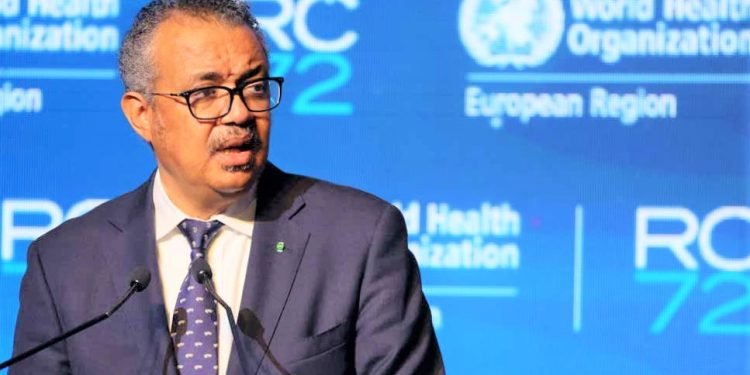The WHO reiterated its determination to take action after India declared that four cough syrups linked to infant mortality in The Gambia passed inspection in-home tests.
In October, the WHO issued a warning, recommending authorities halt sales of the syrups which an Indian company produced.
The WHO’s charge against the syrups was “presumptuous,” a spokesperson of the Indian government said.
However, the health agency claimed that it was simply following its mandate.
The World Health Organization issues international advisories regarding potential issues. WHO supports the decision made, “a representative informed the BBC via email.
The health agency stated that “contaminated syrups are dangerous and should never, ever be included in any medicine.”
Medical officials in The Gambia saw an increase in the incidence of acute renal injury in children under five around the end of July. Later, the government estimated that 69 kids had died from these wounds.
In October, the WHO suggested that these fatalities may have been caused by the four cough syrups made by the Indian company Maiden Pharmaceuticals.
There were “unacceptable levels of diethylene glycol and ethylene glycol as contaminants” in the Promethazine Oral Solution, Kofexmalin Baby Cough Syrup, Makoff Baby Cough Syrup, and Magrip N Cold Syrup samples that the WHO claimed to have analyzed.
Human health is harmed by ethylene glycol and diethylene glycol. Therefore ingesting them could be fatal.
When India said it was looking into the products, Maiden Pharmaceuticals received instructions to stop production at its significant facility in the northern state of Haryana.
According to a letter from Dr. VG Somani, India’s medicines controller general, dated December 13th, the samples examined at a government laboratory “were found not to have been contaminated” with the chemicals.
According to test findings received from the government laboratory, “all the control samples of the four commodities have been judged to be compliant with regulations.”
A group of Indian experts is still reviewing the test results.
The WHO’s assertion that cough syrups were to blame for the children’s deaths was “presumptuous,” according to a senior adviser to India’s information and broadcasting ministry.
The health organization had “jumped the gun for no valid scientific reason,” Kanchan Gupta said, adding that subsequent inspections, tests, and studies by the notified bodies and technical team of the Government of India had shown that WHO’s arrogant remarks were untrue and erroneous.
“It’s a tragedy when so many youngsters pass away from an unexplained illness, which means WHO had to act swiftly,” the organisation told the BBC.
It added that it immediately shared its findings with authorities in The Gambia and India, as well as with representatives of Maiden Pharmaceuticals. Testing of suspected cough syrup items from The Gambia by WHO-contracted laboratories in Ghana and Switzerland revealed excessive amounts of ethylene glycol and diethylene glycol, the report said.
In his letter, Dr. Somani stated that the panel had asked the WHO for “particular information” regarding “other elements required to prove causality” but had not yet received it. The letter did not make explicit the information that the committee had requested.
When contacted, Dr. Somani’s office requested that the BBC contact the Indian Ministry of Health. For a response, the BBC has emailed the government.
India produces a third of the world’s pharmaceuticals, largely as generic drugs.
Most of the medical requirements of African nations are met by the “world’s pharmacy,” which is the location of some of the pharmaceutical industry’s fastest-growing companies.
Dr. Somani said in the letter that the WHO’s comment, which was “amplified by the world media,” had damaged the reputation of the Indian pharmaceutical industry.








